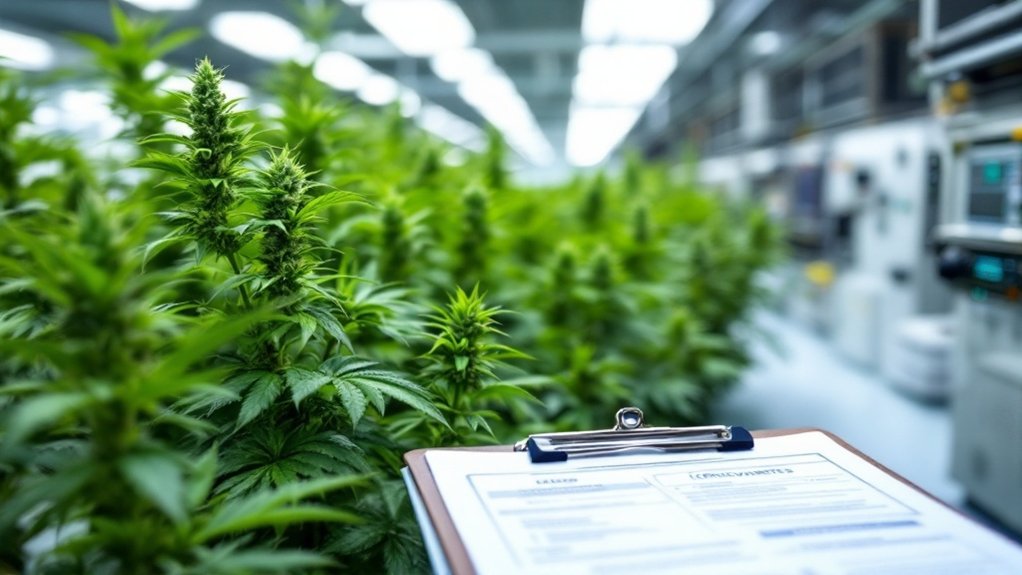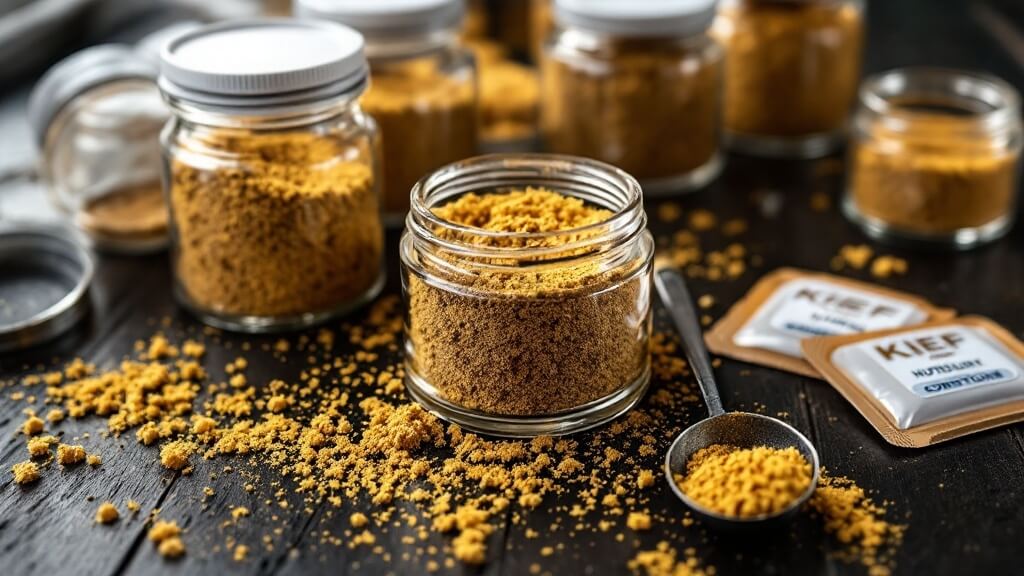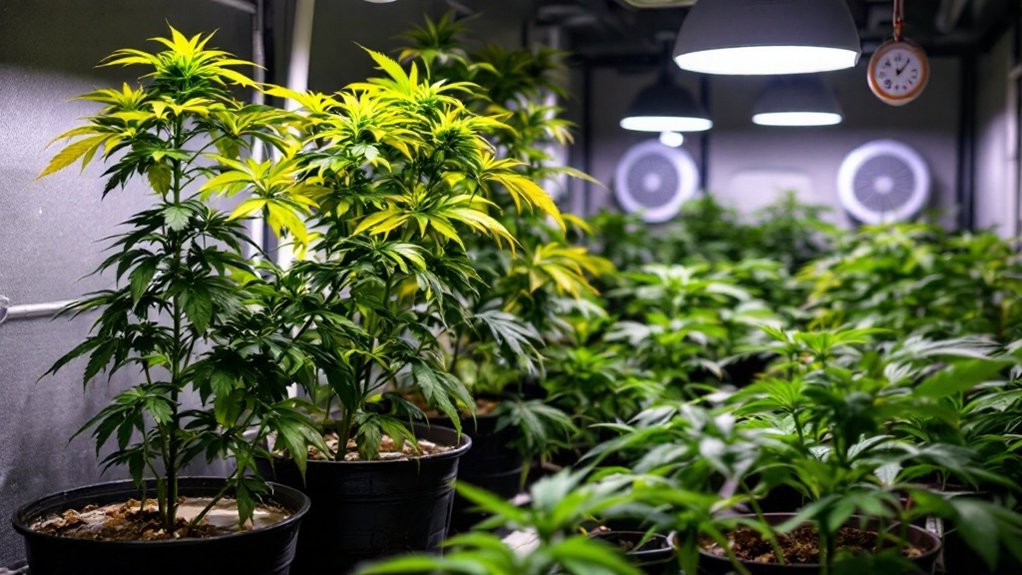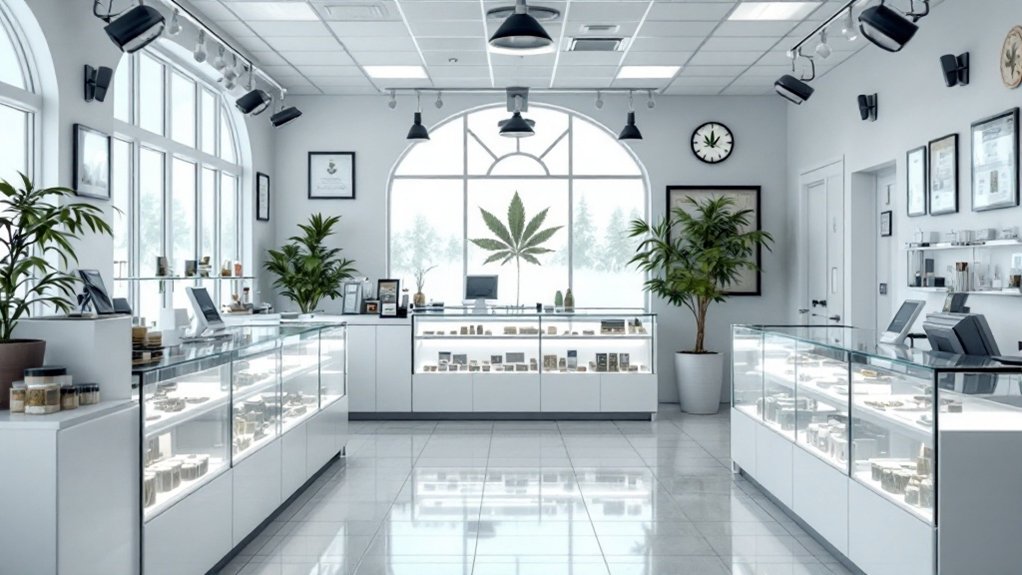To become a licensed cannabis grower in Florida, applicants must obtain a Medical Marijuana Treatment Center license, which requires being at least 21 years old with five consecutive years of Florida business registration. The process involves submitting audited financial statements, detailed business documentation, and passing thorough background screenings. Current application fees are $60,063, though new cultivation licenses are temporarily suspended. Technical expertise in specialized growing techniques and environmental control systems greatly increases approval chances. During the 2024 General Election, Amendment 3 failed to garner 60% of the vote to legalize recreational use of marijuana.
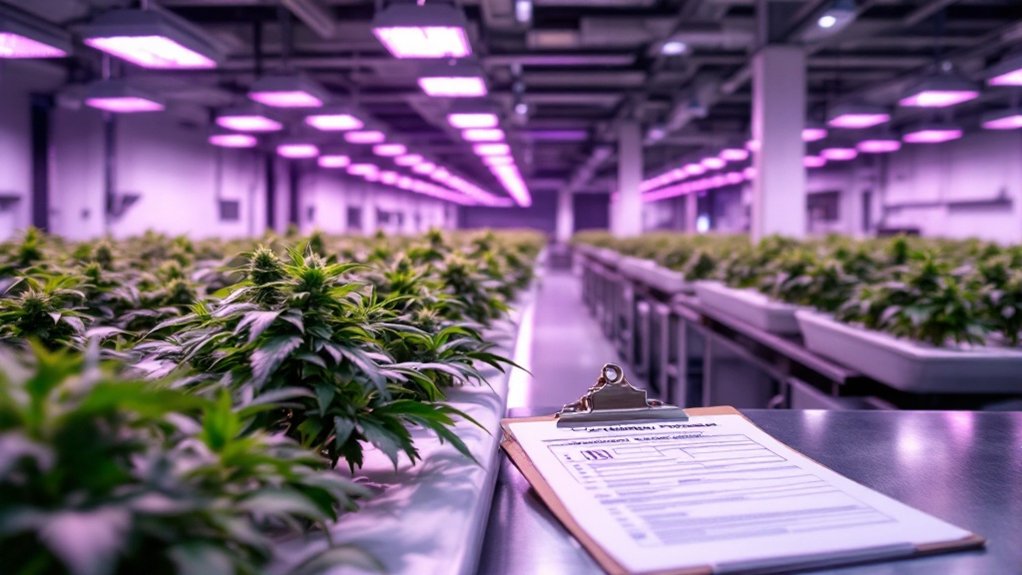
Maneuvering the complex path toward becoming a licensed cannabis grower requires understanding the intricate regulatory landscape that varies greatly across states. In Florida, the cannabis industry operates under specific parameters with medical cannabis legal but recreational use still prohibited. Possession of less than 20 grams can result in up to one year of incarceration and substantial fines, highlighting the importance of proper licensing within this evolving market. Understanding the nuances of the cannabis business license process is crucial for applicants.
Florida’s cannabis cultivation operations require a Medical Marijuana Treatment Center (MMTC) license, though as of January 2021, the state had suspended issuance of new cultivation licenses. Consulting with cultivation experts can provide invaluable guidance through this complex application process. This referendum could potentially legalize recreational cannabis and create additional licensing opportunities with potentially lower fees than the current $60,063 MMTC application fee.
While Florida paused new MMTC license issuance, the 2024 Amendment 3 failed to garner 60% of the vote to legalize recreational use of marijuana.
Qualifying for a cannabis cultivation license in Florida demands meeting several stringent criteria. Applicants must be at least 21 years old and demonstrate five consecutive years of business registration in the state. Owners undergo thorough background screening including fingerprinting and level-2 verification processes. The application package must contain certified documentation of Florida business registration history, valid agricultural certification from the Department of Agriculture and Consumer Services, and detailed organizational charts. All cannabis must be grown in enclosed structures separate from other plants to maintain strict compliance with state regulations.
Financial readiness represents a critical component of the application process. Prospective cannabis cultivators must submit audited financial statements from the preceding 12 months along with detailed business structure documentation. The application must specify all cultivation, processing, and dispensing properties where operations will occur, demonstrating compliance with state regulations and operational preparedness.
Professional expertise in cannabis cultivation extends beyond conventional agricultural knowledge. Technical proficiency in specialized growing techniques, environmental control systems, and plant genetics greatly influences success rates. Many applicants engage cannabis licensing consultants to navigate the complex application process, as these professionals offer expertise that can meaningfully increase approval chances.
While recreational cannabis remains illegal in Florida, industry observers anticipate regulatory changes following the 2024 vote. These developments could create new pathways for aspiring cannabis cultivators seeking entry into this expanding market. Potential growers should monitor regulatory updates while preparing thorough documentation and developing the technical expertise necessary to meet licensing requirements once new opportunities emerge.
Frequently Asked Questions
How Much Does a Cannabis Growing License Typically Cost?
Cannabis cultivation license costs vary greatly by state, ranging from $1,000 in Alaska for limited operations to over $400,000 in Texas for biennial dispensing organization licenses.
Standard marijuana cultivation permits typically fall between $5,000-$25,000 initially, with additional annual renewal fees.
Costs often depend on the cultivation facility’s size, production capacity, and whether it serves medical or recreational markets.
Some states use tiered pricing structures based on square footage or plant counts.
Can I Grow Cannabis in My Home for a Dispensary?
Growing cannabis at home for dispensary supply is prohibited in all states with legal cannabis markets.
Residential cultivation is strictly limited to personal or medicinal use with specific plant count restrictions.
Commercial cannabis production requires proper business licensing, adherence to rigorous regulations, security protocols, and inspection processes that home environments cannot satisfy.
In Texas specifically, all home cultivation remains illegal regardless of intent, with only licensed organizations permitted to grow cannabis for dispensary operations under state oversight.
What Security Measures Are Required for Licensed Growing Facilities?
Licensed cannabis growing facilities must comply with extensive security requirements.
These typically include 24/7 video surveillance systems monitoring all critical areas, with footage retention periods specified by state regulations.
Physical security barriers, restricted access controls, and alarm systems that detect unauthorized entry are mandatory.
Facilities must also implement fire protection systems, adequate lighting throughout the premises, and maintain detailed documentation of security measures for regulatory compliance and license renewal processes.
Are There Limits on How Many Plants I Can Grow?
Plant cultivation limits vary considerably by state and license type.
Commercial cannabis growers typically face restrictions based on canopy square footage rather than specific plant counts. Most jurisdictions implement tiered licensing systems that determine maximum cultivation capacity based on facility size and license classification.
Regulatory authorities require thorough seed-to-sale tracking systems to monitor compliance with these established limits. Exceeding permitted quantities can result in severe penalties, including license revocation and potential legal consequences.
Do I Need Agricultural Experience to Become a Licensed Grower?
While agricultural experience is considered valuable for licensed growers, it is not always a strict prerequisite. Many states prioritize business planning, financial stability, and compliance knowledge over formal farming experience in their application processes.
Applicants with cultivation backgrounds may have competitive advantages in designing facility plans and developing standard operating procedures. Alternative qualifications, such as pharmaceutical experience or strong financial backing, can often compensate for limited agricultural expertise.
Some states offer social equity pathways that consider other factors beyond traditional growing experience.
